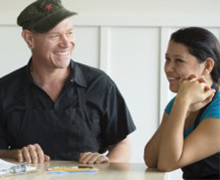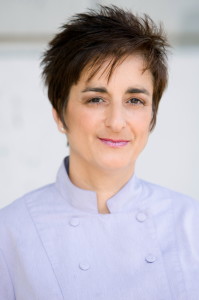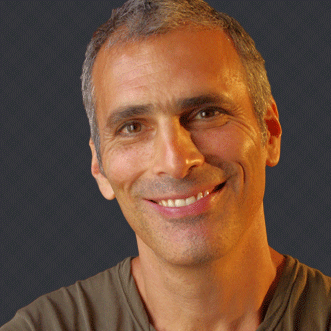5 shocking facts about water scarcity that will make you cry a river
For most of us, water scarcity and water poverty probably aren’t high on our list of things that we regularly think about or take action on (but if they are, good on ya), what with all of our attention being pulled every which way by the news story or Facebook meme or funny video of the day, but those water issues directly affect hundreds of millions of people every day of their life. Most of us probably have no problem when we want or need water, anytime of day or night, as safe clean water flows right out of our taps with virtually no effort on our part, and we can use it for for drinking, for washing, for watering the garden, at a very low cost to us. But in many parts of the world, getting enough water to drink everyday may mean walking miles to fetch it, which directly impacts the lives of those people especially women and children, who are primarily responsible for water collection in developing countries), because it not only takes a huge amount of time (estimated 200 million hours each day, globally), but also takes a physical toll, as the water is often transported on their backs. coque iphone 2019 soldes To help raise awareness of these very real water issues on World Water Day 2014 (March 22nd), here are five shocking facts about water scarcity. 1. Almost 800 million people lack access to clean safe water every day. That’s more than two and a half times the population of the United States, where most of us probably waste more water before noon than those people use in a month. 2. Almost 3 ½ million people die every year because of water and sanitation and hygiene-related causes, and almost all of them (99%) are in the developing world. coque iphone pas cher That’s like the population of a city the size of Los Angeles being wiped out each year. 3. coque iphone pas cher Every 21 seconds, another child dies from a water-related illness. coque iphone 2019 pas cher Diarrhea, something we don’t really consider to be dangerous in the developed world, is actually incredibly deadly, and is the second leading global cause of death for kids under five. 4. More than 1 billion people still practice open defecation every day. In fact, more people have a mobile phone than a toilet. Open defecation is just what it sounds like, which is squatting wherever you can and pooping right on the ground, which can not only pollute the immediate area, but can also contaminate community water supplies. Sanitation and clean water go hand in hand. 5. coque iphone soldes The average American, taking a 5 minute shower, uses more water than an average person in the slums of a developing country does in a whole day. And to be honest, it seems like a 5 minute shower is probably on the short side for many people, so that’s as if we used our entire day’s water ration, just to wash our body. Water poverty and its related issues affect the health, wealth, education, and wellbeing of all of those who live with it every day, so supporting clean water initiatives can make a big difference for many of our fellow Earthlings. But that doesn’t always have to be in the form of a monetary donation to a water charity or nonprofit (although those are certainly welcome). coque iphone 6 Support for water issues can be as diverse as being an outspoken advocate and sharing water stories via social media, or educating our children about the issues, or volunteering for a water advocacy group. If you’re a smartphone user, this water charity initiative dares you to not touch your phone for 10 minutes to fund a day of water, and this one, asks Instagram users to upload and donate a photo of “your water day” (and tag it with #waterday) via the Donate A Photo app to get $1 donated to Water.org from Johnson & Johnson. The theme of this year’s World Water Day is Water and Energy, because those two issues are not only closely interlinked, but also interdependent, and addressing them both is the only way forward.
 Cafe Gratitude does business through a practice we call “Sacred Commerce.” We view our restaurants as environments to not only serve healthy food, but also training grounds to practice seeing our lives from a perspective of gratitude. We believe that we are the source of our experience in life, not the circumstances. We train our staff to practice putting their attention on the outcome they wish to create for themselves, whether it is work related or personal. We believe in honest and direct communication with our co-workers, and encourage our staff to support one another, make strong and clear requests, and always take 100% responsibility. Above all, we celebrate life and invite our community of guests to join us in creating a world that is sustainable, compassionate and abundant for all.
Cafe Gratitude does business through a practice we call “Sacred Commerce.” We view our restaurants as environments to not only serve healthy food, but also training grounds to practice seeing our lives from a perspective of gratitude. We believe that we are the source of our experience in life, not the circumstances. We train our staff to practice putting their attention on the outcome they wish to create for themselves, whether it is work related or personal. We believe in honest and direct communication with our co-workers, and encourage our staff to support one another, make strong and clear requests, and always take 100% responsibility. Above all, we celebrate life and invite our community of guests to join us in creating a world that is sustainable, compassionate and abundant for all.
 For more than 20 years, chef Flo cooked for her many students and celebrity clients the way she had learned in her native France: rich in butter and creamy sauces, heavy on meats, eggs and dairy. Then a paradigm shift happened. She began to see how certain foods had a profoundly positive effect on the health of her autistic daughter and on Flo herself. She created her own food pyramid based on three principles: vegan, gluten-free and pH-balanced. Menus began evolving. Flo started using dense plant-based hypoallergenic foods like sprouted grains, nuts, vegetarian proteins, fresh greens and produce from local farms.
For more than 20 years, chef Flo cooked for her many students and celebrity clients the way she had learned in her native France: rich in butter and creamy sauces, heavy on meats, eggs and dairy. Then a paradigm shift happened. She began to see how certain foods had a profoundly positive effect on the health of her autistic daughter and on Flo herself. She created her own food pyramid based on three principles: vegan, gluten-free and pH-balanced. Menus began evolving. Flo started using dense plant-based hypoallergenic foods like sprouted grains, nuts, vegetarian proteins, fresh greens and produce from local farms. Kest has been teaching yoga since 1985. “My primary objective”, says Kest, “besides turning more and more people on to a healthier, more peaceful lifestyle that continually challenges them to grow, is to teach a system of exercise that fully integrates the body, mind, and spirit.
Kest has been teaching yoga since 1985. “My primary objective”, says Kest, “besides turning more and more people on to a healthier, more peaceful lifestyle that continually challenges them to grow, is to teach a system of exercise that fully integrates the body, mind, and spirit. An international yoga teacher, author and health & wellness expert Tiffany travels the globe inspiring people to live their lives to the fullest. Tiffany is known for her lighthearted attention to detail and passionate dedication to the practice. With her training in Acupuncture & Sports Medicine her yoga classes are guided by a strong anatomic focus intermingled with her characteristic playfulness using movement as medicine.
An international yoga teacher, author and health & wellness expert Tiffany travels the globe inspiring people to live their lives to the fullest. Tiffany is known for her lighthearted attention to detail and passionate dedication to the practice. With her training in Acupuncture & Sports Medicine her yoga classes are guided by a strong anatomic focus intermingled with her characteristic playfulness using movement as medicine.